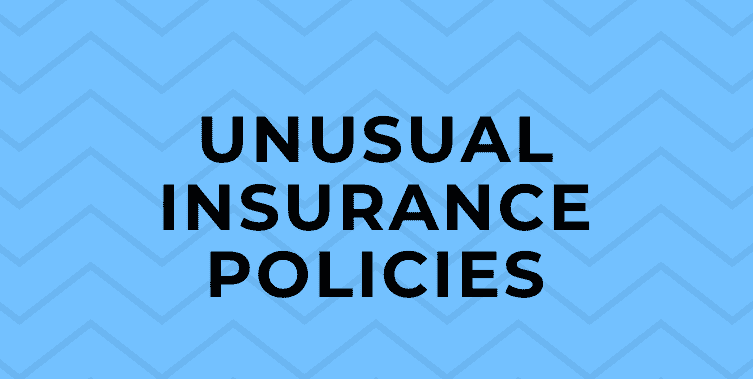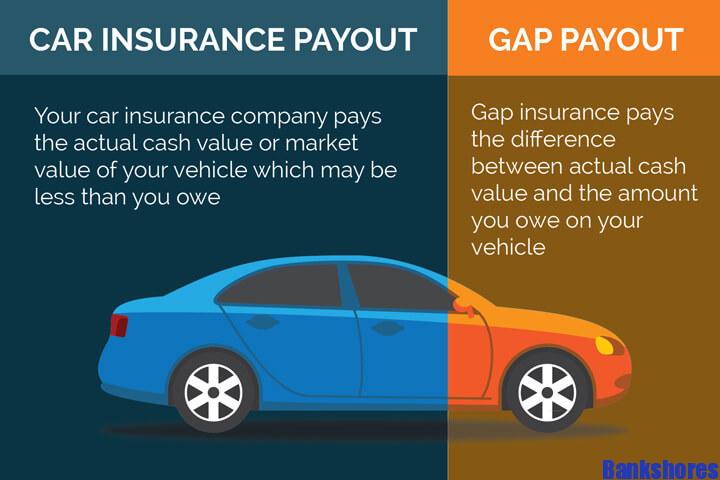There are very many unusual Insurance Policies You Didn’t Know You Needed. Unfortunately, the risk of getting hurt or losing your possessions are unavoidable, even in the safest of environments. But insurance exists to protect against these risks and help you pick up the pieces if something does go wrong. If you’re like most people, you have one or two insurance policies that you think are all you need, but there are many more out there that you might not know about! In this post, we’ll tell you about some of the most unusual insurance policies you didn’t know you needed—because they might just save your life or your wallet down the line…
Kidnap and Ransom Insurance
Kidnap and ransom insurance is meant to assist protect your company from the financial effect of sudden and unexpected expenses associated with kidnapping, extortion, and ransom or illegal detention. This insurance can also help cover the costs of illegal detention. Coverage under kidnap and ransom insurance policies often includes reimbursement for cash paid to kidnappers or extortionists, loss of ransom while it is in transit, and any expenses incurred as a direct result of a kidnapping.
These dangers are extremely real, and they could strike any company at any time. It’s possible that someone harbors ill will toward you, your firm, or one of your employees. It’s even possible that someone will try to coerce you into divulging firm trade secrets. Even if no ransom money is paid, the stress of these situations can result in unanticipated costs, which can have a substantial effect on your company’s bottom line.
Wedding Cancellation Insurance
If you find yourself in the unfortunate position of having to postpone or call off your wedding, take precautions to protect your finances. In the event that your wedding goes forward as planned despite an insured loss to your wedding dress, rings, photographs, movies, or gifts, you will still be protected by your policy.
Extreme Sports Insurance
Individuals who are addicted to the rush of adrenaline and enjoy engaging in high-intensity sporting activities while they are on vacation will find that extreme sports travel insurance is ideally suited to their needs. Because a normal insurance policy might only cover low-risk hobbies, you’ll probably need a separate level of coverage if you participate in high-risk activities like rock climbing or skydiving.
There are literally hundreds of different pursuits that might be categorized as “extreme,” each with its own unique level of danger. There isn’t a universal consensus among insurance companies on what constitutes an extraordinary event. The manner in which your insurance carrier evaluates risk will determine whether or not you will be able to obtain coverage for a specific sport or activity.
It is crucial to let your insurance provider know what sports you plan to participate in while you are away from home so that they can make an appropriate determination regarding the level of coverage you require.
Credit Insurance
When a borrower defaults on a loan, credit insurance will refund either a portion of the loan or the entire loan. Additionally, we offer the following under the umbrella of credit insurance:
Mortgage Insurance
Mortgage insurance, also known as home-loan insurance and mortgage guarantee insurance, is a type of insurance policy that reimburses lenders or investors in mortgage-backed securities for losses sustained as a result of a borrower’s failure to pay back a mortgage loan. Depending on the insurer, mortgage insurance might come in the form of either public or private coverage. In particular the United Kingdom uses the term “mortgage indemnity guarantee,” which is another name for the coverage.
Trade credit insurance
Business entities looking to safeguard their receivables from loss due to credit risks like protracted default, insolvency, or bankruptcy may purchase trade credit insurance, business credit insurance, export credit insurance, or credit insurance from private insurance companies and governmental export credit agencies. This insurance is a sort of property and casualty insurance, not to be confused with credit life or credit disability insurance, which people buy to protect themselves from the possibility of losing their ability to earn money to pay their obligations. Political risk insurance, which is provided by the same insurers to cover the risk of non-payment by foreign customers owing to monetary problems, political upheaval, expropriation, etc., can include a component of trade credit insurance.
This underlines the crucial part that trade credit insurance plays in promoting global trade. As an alternative to prepayment or cash on delivery terms, suppliers give trade credit to their clients, giving them time to make enough money from sales to cover the cost of the good or service. The vendor must take on the risk of non-payment as a result. When regulations, customs communications, and a customer’s reputation are not fully recognized, there is an increased danger in both local or domestic situations as well as in export transactions. International trade brings the issue of the delay between goods shipment and their availability for sale in addition to the higher risk of non-payment.
The amount owed is similar to a loan and indicates money that the vendor has invested or, more frequently, borrowed. However, until it is paid, this asset is not secure. The large, risky asset, like an insured building, becomes more secure if the customer’s debt is credit insured. Lending institutions may then consider this asset to be collateral and issue a loan based on it to cover transaction costs and increase production. As a result, trade credit insurance is an instrument for trade financing.
Business entities buy trade credit insurance to protect their receivables from loss caused by the insolvency of the debtors. Individuals cannot purchase the product. The cost (premium) for this is typically billed on a monthly basis and is calculated as a percentage of either the current month’s sales or the total amount of past-due receivables.
Trade credit insurance typically protects a group of purchasers and pays a predetermined portion of invoices or receivables that are past due to prolonged default, insolvency, or bankruptcy. For the sales to each of their customers to be protected, policyholders must set a credit limit. The premium rate reflects the portfolio of buyers covered by insurance’s average credit risk. Additionally, single transactions or trade with a single buyer may be covered by credit insurance.
Collateral protection insurance
Property used as collateral for loans issued by lending institutions is covered by collateral protection insurance, or CPI. CPI, often referred to as force-placed insurance and lender-placed insurance, can be categorized as either single-interest insurance if it only protects the interests of the lender or as dual-interest insurance coverage if it does so.
The borrower often agrees to obtain and maintain insurance when signing a loan agreement, designating the lending institution as the lienholder and including comprehensive and collision coverage for cars and hazard, flood, and wind coverage for residences. If the borrower doesn’t buy this insurance, the lender is exposed to losses and must turn to a CPI provider to safeguard its interests.
Lenders buy CPI to transfer their risk of loss to an insurance firm, thereby managing their own risk of loss. CPI only affects uninsured borrowers or lender-owned collateral, such as auto repossession and home foreclosure, in contrast to other insurance options accessible to lenders, such as blanket insurance, which affects borrowers who have previously paid the insurance.
Additionally, the uninsured borrower may be protected in a number of ways depending on the CPI policy’s structure that the lender chooses. For instance, a policy can state that the borrower may fix damaged collateral and keep it. The loan may be repaid through CPI insurance if the collateral is irreparably ruined.
Cyber attack insurance
Cyber insurance is a specialized form of property and casualty insurance that was developed to shield companies not just from dangers posed by the Internet but also, more generally, from perils connected to the infrastructure and operations of information technology. Risks of this sort are often not covered by conventional business general liability plans, or at the very least, they are not expressly defined by conventional insurance offerings.
Coverage provided by cyber-insurance policies may include first-party coverage against losses such as data destruction, extortion, theft, hacking, and denial of service attacks; liability coverage indemnifying companies for losses to others caused, for example, by errors and omissions, failure to safeguard data or defamation; and other benefits including regular security-audits, post-incident public relations and investigative expenses, and criminal reward funds. Coverage may also be provided against third-party losses such
Others
There are still a great many insurance policies that we categorize as “small insurance policies,” in addition to the insurance policies that we have already discussed in this article. The following are some of them:
All-risk insurance
All-risk insurance is a type of insurance that provides coverage for a wide variety of accidents and dangers, with the exception of those that are specifically mentioned in the policy. All-risk insurance is not the same as peril-specific insurance, which compensates policyholders for financial losses caused only by the specified dangers. [51] An all-risk policy is a type of automobile insurance that covers any damage, regardless of who was driving the vehicle.
bloodstock insurance
The coverage of bloodstock insurance extends to single horses as well as herds of horses that share ownership. Normal coverage includes death brought on by an accident, illness, or disease; however, it may also expand to encompass infertility, in-transit loss, veterinarian bills, and a possible foal.
business interruption insurance
In the event that a covered hazard disrupts normal business operations, business interruption insurance will compensate the policyholder for lost income as well as any additional expenses incurred as a direct result of the disruption.
Defense Base Act (DBA)
Civilian workers hired by the government to carry out contracts outside of the United States and Canada are eligible for coverage under the Defense Base Act (DBA), which is an insurance program. DBA is required for anyone who is a citizen of the United States, a resident of the United States, or who holds a Green Card from the United States, as well as for any employees or subcontractors recruited on overseas government contracts. Depending on the nation, citizens of other countries are required to have DBA coverage as well. In most cases, this protection will take care of costs associated with medical care and lost wages, in addition to providing payments in the event of incapacity or death.
Expatriate insurance
Expatriate insurance offers individuals and organizations who conduct business outside of their place of origin security for their autos, property, health, and liability concerns, as well as for their commercial endeavors.
Hired-in Plant Insurance
Hired-in Plant Insurance is a type of liability insurance that protects a customer in the event that they are held financially responsible for the cost of hired-in equipment as well as any rental charges that are owed to a plant hire firm for items such as construction plant and machinery under the terms of a contract of hire.
Policyholders are protected against the potential financial burden of legal action brought against an organization or an individual by purchasing legal expenditures insurance. The occurrence of “the incident” is referred to as “the event” when it is necessary to take legal action because of it. There are two primary kinds of legal expense insurance: coverage that begins before the occurrence and coverage that begins after the event.
livestock insurance
A livestock insurance policy is a specialized type of insurance that can be purchased by commercial or hobby farms, aquariums, fish farms, or any other type of animal holding facility. Coverage is available for mortality or economic slaughter that is the consequence of an accident, illness, or disease; however, it can be extended to encompass devastation that is ordered by the government.
media liability insurance
Defamation is one of the types of risks that can be covered by media liability insurance, which is meant to protect professionals who work in film, television, and print media creation.
Nuclear event insurance, which is normally handled at the national level, compensates policyholders for financial losses sustained as a result of an accident involving radioactive materials. (For more information, see the nuclear exclusion clause as well as the Price–Anderson Nuclear Industries Indemnity Act applicable to the United States.)
Over-redemption insurance
Over-redemption insurance is something that companies buy to safeguard themselves financially in the event that a promotion ends up being more successful than was first anticipated and/or budgeted for. This kind of insurance is obtained by companies.
Pet insurance
Pet insurance protects animals against harm caused by accidents and illness; in addition, some policies pay for preventative or wellness care as well as funeral expenses.
pollution insurance
The majority of the time, pollution insurance takes the form of first-party coverage for the contamination of covered property, which can be caused by either off-site or on-site causes. Coverage is also provided for responsibility to third parties resulting from the unexpected and inadvertent release of hazardous materials from the insured location, which can contaminate the air, water, or land. This type of release can cause contamination. Typically, the costs of cleanup are covered by the policy, and it may also cover any releases that occur as a result of subterranean storage tanks. Intentional activities are expressly not included in this definition.
purchase insurance
The purpose of purchase insurance is to offer protection on the things that consumers buy for themselves. Purchase insurance may include coverage for individual purchase protection, warranties, and guarantees, as well as care plans and even insurance for mobile phones. The range of issues that can often be covered by such insurance is restrictive due to the nature of the policy.
Tax insurance
Tax insurance is increasingly being utilized in corporate transactions as a means of protecting taxpayers in the event that the Internal Revenue Service (IRS) or another state, local, or international taxation body challenges a tax position that the taxpayer has taken.
title insurance
The acquisition of title insurance provides an assurance to the purchaser or mortgagee that the title to the real property will be vested in them free and clear of any liens or encumbrances. In most cases, it is provided in combination with a search of the public records that is carried out at the same time as a transaction involving real estate.
Travel Insurance
Travel insurance is an insurance cover that is taken out by individuals who travel overseas, and it covers specific losses such as medical expenditures, loss of personal possessions, travel delay, and personal liabilities. Travel insurance is an insurance cover that is taken out by those who travel abroad.
Tuition insurance
Students who have tuition insurance are protected against having to withdraw involuntarily from educational institutions with high expenses.
Purchasing interest rate insurance
Those who have loans or mortgages with variable interest rates may benefit from purchasing interest rate insurance since it safeguards them against unfavorable shifts in lending rates.
Divorce insurance
A type of contractual liability insurance known as divorce insurance provides the insured with a monetary payout in the event that their marriage is legally dissolved.
Closed community and governmental self-insurance
Contractual risk transfer, in which risks are given explicit numerical amounts, is avoided as much as possible in certain communities in favor of the creation of virtual insurance amongst themselves through alternative methods. When calamities befall their communities, a number of religious communities, notably the Amish and certain Muslim organizations, are dependent on the support that is supplied by those communities.
The community as a whole bears the cost of repairing damaged property and providing assistance to individuals whose requirements have suddenly become more pressing as a result of a loss of some kind, which means that they collectively assume the risk that is posed by any individual member of the community. This unstated kind of protection can be effective in communities that are mutually supportive and in which members of the community can be relied upon to follow the guidance of community leaders. The community will be able to mitigate the significant disparities in insurability that exist among its constituents if it adopts this strategy. Invoking the concept of moral hazard in connection with explicit insurance contracts also contributes to the rationale in some way.
In the United Kingdom, properties such as government buildings were not covered by insurance policies issued by “The Crown,” which, for all intents and purposes, referred to the civil service. If a government facility were to sustain damage, the expense of repairing it would be paid for out of public funds rather than insurance premiums because, in the long term, paying for repairs would be less expensive.
This arrangement is not as popular as it once was due to the fact that a large number of government buildings in the UK have been sold to property companies and rented back.
The use of governmental risk management pools represents the type of self-insurance that is most prevalent in the United States. They are self-funded cooperatives that provide coverage to the bulk of public institutions in operation today, such as county governments, municipal governments, and school districts. These entities include county governments, municipal governments, and school districts. These governmental institutions join a risk pool rather than separately self-insuring and exposing themselves to the possibility of financial ruin as a result of a huge judgment or catastrophic loss.
These pools start their activities by capitalizing themselves through the deposits of their members or through the sale of bonds. Coverage (including general liability, car liability, professional liability, workers’ compensation, and property) is provided to the members of the pool in a manner that is analogous to the manner in which insurance firms provide coverage for their customers.
Self-insured pools, on the other hand, provide their members with a number of advantages, including reduced premiums (caused by the elimination of the need for insurance brokers), greater benefits (including loss prevention services), and subject matter expertise. 75,000 of the over 91,000 distinct governmental bodies that are currently operating in the United States are members of self-insured pools in various lines of coverage, and these pools collectively make up approximately 500 separate pools.
The yearly contributions to such pools are anticipated to reach up to 17 billion dollars annually, despite the fact that this segment of the insurance industry represents just a relatively tiny portion of the overall market.






